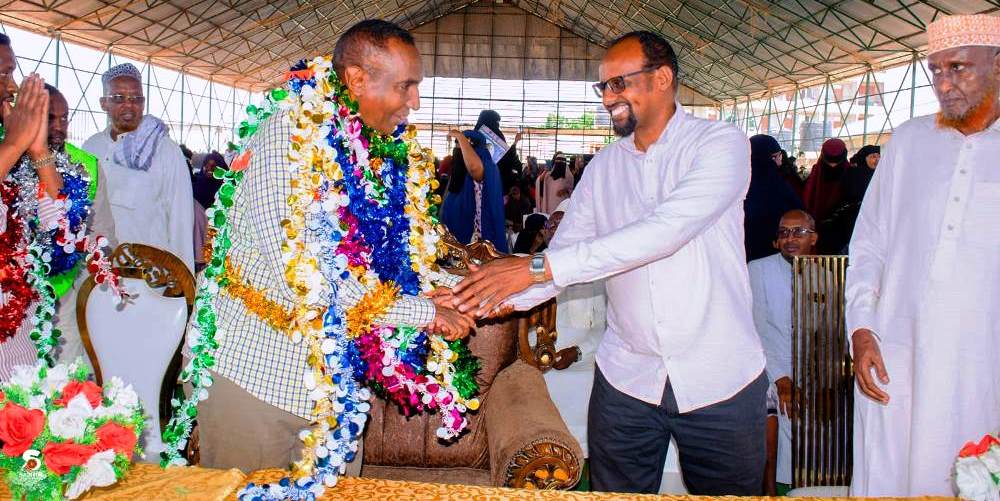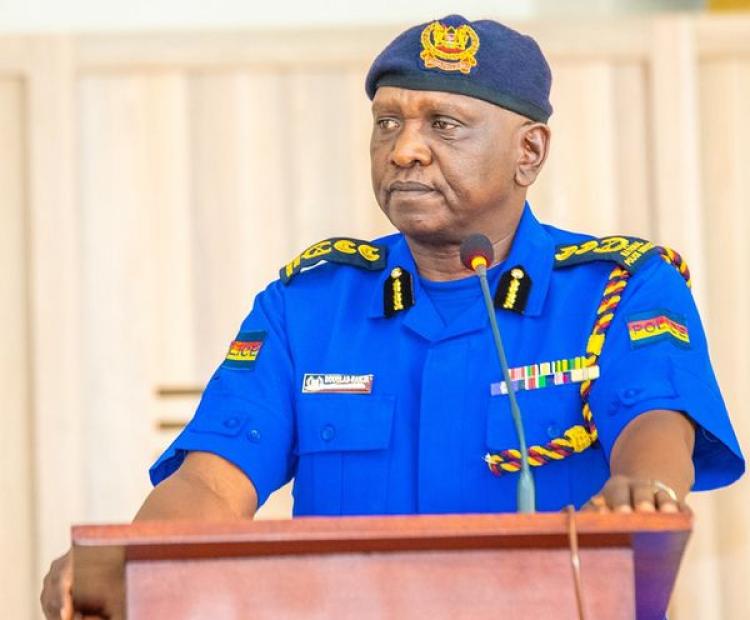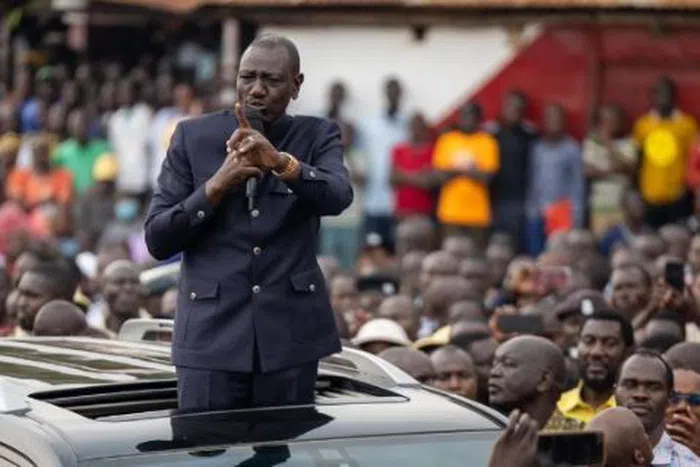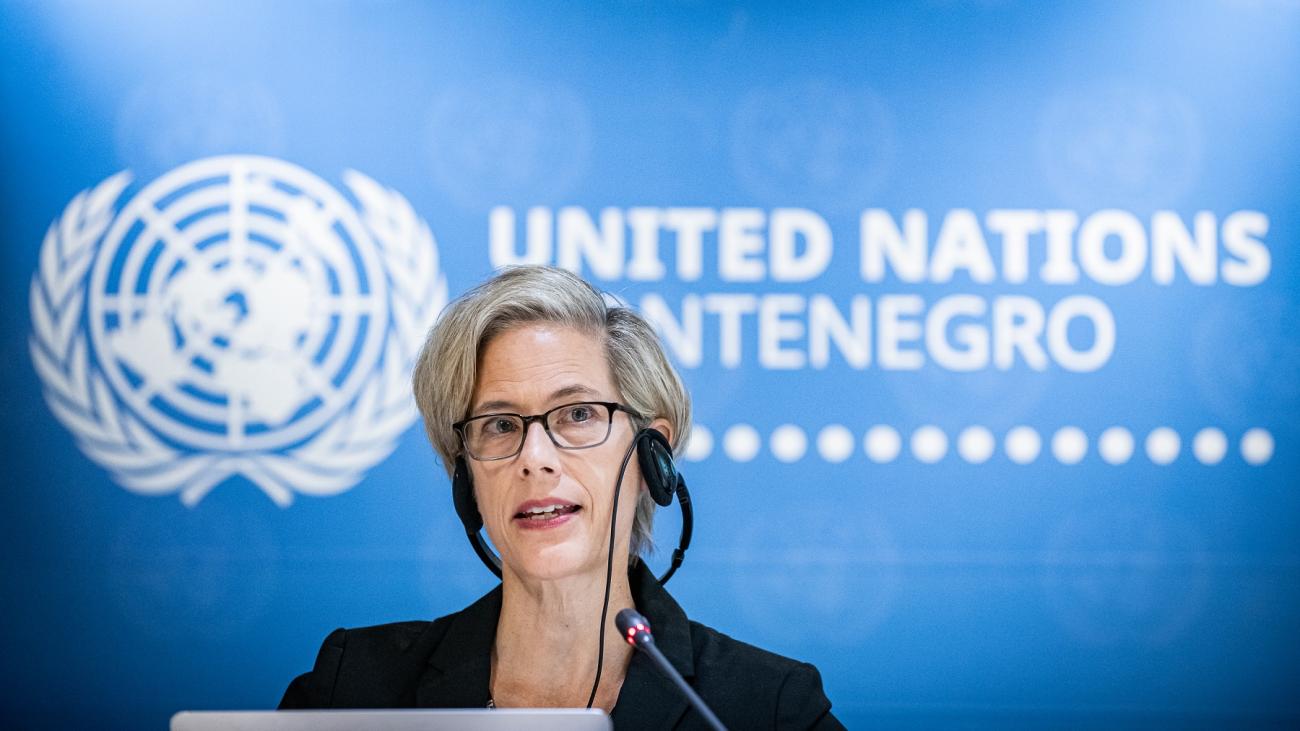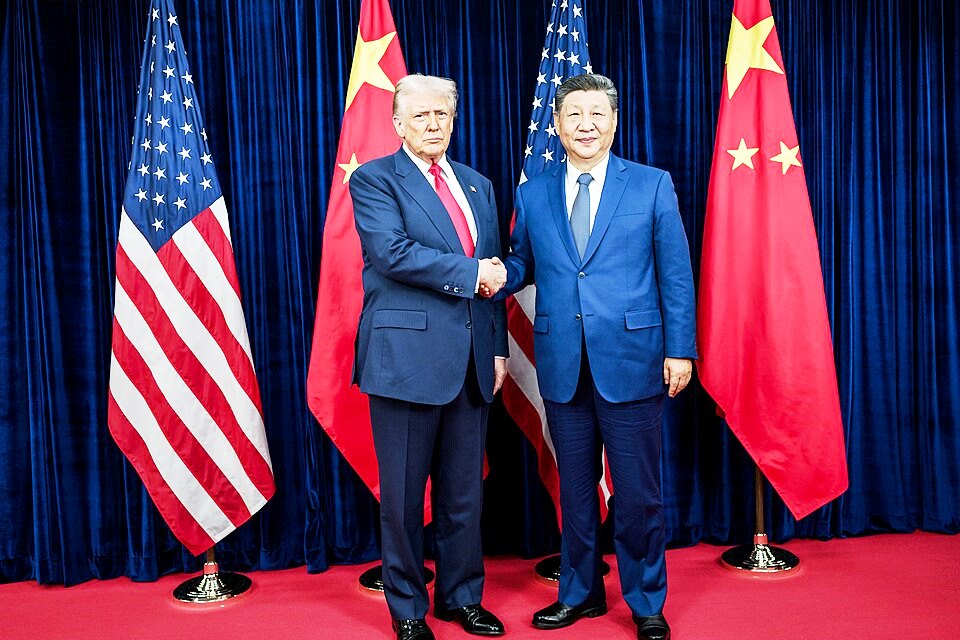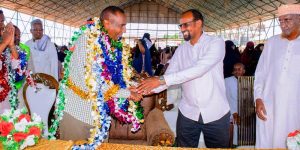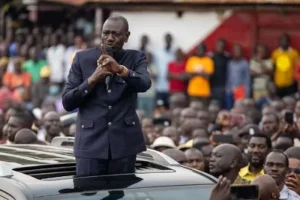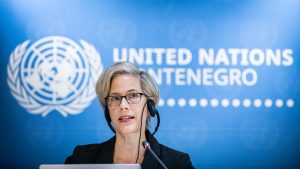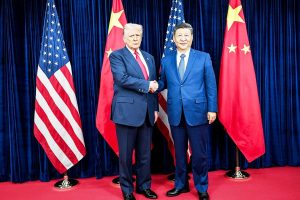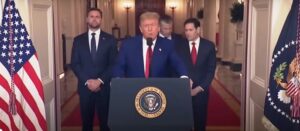Former Deputy President Rigathi Gachagua says IG Douglas Kanja, to blame for his attack. PHOTO/NPS
On Sunday, April 6, 2025, a disgraceful act of political violence shook the peaceful sanctity of a church service at PCEA Mwiki Church in Kasarani Constituency.
Unknown individuals stormed the church, disrupting the service attended by former Deputy President Rigathi Gachagua. The mayhem that followed saw Gachagua’s security team forced to fire in the air, turning a sacred space into a theatre of chaos. This is not just an attack on Gachagua—it is an assault on the very essence of Kenya’s constitutional freedoms.
This incident is emblematic of a deeper rot in our political system. The church, once a refuge for prayer and reflection, has now been violated by the forces of political rivalry. Gachagua, a prominent politician, was forced into a violent confrontation in what should have been a peaceful space. His life, along with that of innocent worshippers, was placed in grave danger—simply because he dared to occupy a position of political dissent. This is not merely an unfortunate event; it is a clear symptom of a political climate increasingly hostile to free expression.
The timing of this attack only compounds the crisis. Gachagua, a vocal critic of President William Ruto’s administration, was preparing for a national TV interview today (April 7), where he would discuss key political developments. His critics, threatened by his views, have sought to stifle his voice through intimidation and violence. This is not just an isolated attack—it is an orchestrated attempt to silence political dissent and suppress the rights of Kenyans to speak their truth.
Kenya’s Constitution guarantees every citizen the fundamental rights to freedom of expression, association, and worship. The brutal attempt to quash these rights in a church, no less, is a direct violation of the democratic principles we hold dear. The people of this country must not tolerate such egregious acts. The message sent by this violence is chilling: dissent will not be tolerated; those who challenge the political elite will be silenced—by any means necessary.
Gachagua’s assertion that the attack was orchestrated by the Inspector General of Police, Douglas Kanja, raises further alarm. Kanja, who has been paraded by President Ruto during his recent Mount Kenya tour, has shown a disturbing alignment with the political agenda of the government.
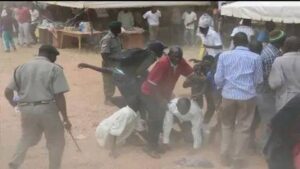
PCEA Mwiki Church congregants scamper for safety following chaos at their church. PHOTO/UGC.
The police force, an institution meant to protect all Kenyans regardless of their political affiliation, has been reduced to a pawn in the service of political power. This blatant politicisation of the police undermines the trust the public places in law enforcement and is a clear breach of the principle of impartiality that the service should embody.
If we allow the police to become an instrument of political retribution, we place every Kenyan citizen at risk. Who will protect the rights of ordinary people when the police force is no longer independent, but merely an extension of political power? This is a question every Kenyan must grapple with as we witness the growing politicisation of our security institutions.
The words of Wiper Party leader Kalonzo Musyoka, who condemned the attack as “state-sponsored,” must be taken seriously. The increasing tendency to turn places of worship into battlegrounds for political conflict is deeply worrying. Churches, mosques, and other religious institutions should remain sanctuaries of peace, not sites of violence.
The government’s failure to uphold this basic principle is a shameful abandonment of its duty to protect the sacred nature of these spaces. By permitting such violence to go unchecked, we risk transforming religious institutions into flashpoints for political warfare—a dangerous path that threatens the very fabric of our society.
Equally alarming is the growing trend of using public office and state institutions to further political control. As Kalonzo rightly pointed out, “We must not allow places of worship to be turned into theatres of violence.” By allowing the police and other state bodies to become extensions of political power, the government undermines the institutions that should serve the people, not the ruling elite. The integrity of these institutions is now in question, and the consequences could be disastrous if left unchecked.
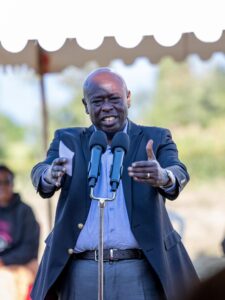
Former Deputy President Rigathi Gachagua. PHOTO/FACEBOOK
The Constitution of Kenya guarantees every citizen the right to freely associate, speak their mind, and worship without fear of violent reprisal. When these rights are trampled upon by political operatives seeking to silence dissent, we all lose.
It is not enough to simply lament these events—we must demand accountability. The Inspector General of Police must be held to account, not only for his failure to prevent this attack but for the broader politicisation of the police force. If the police cannot serve impartially, then they are of no use to anyone.
It is time for the government to heed the calls of leaders like Kalonzo Musyoka, who demand a return to respect for the Constitution, the independence of state institutions, and the protection of civil liberties. It is vital that we restore the integrity of the police force and ensure that all public institutions remain neutral, serving the interests of every Kenyan, not the political elite. The people of Kenya deserve better.
As a nation, we must demand an uncompromising commitment to the rule of law, the protection of our constitutional rights, and the preservation of the democratic principles upon which our nation was founded. The attack on Gachagua cannot, and must not, be allowed to fade into the background.
This is a defining moment for our democracy—a call to action for all Kenyans to stand united in defence of the freedoms that are rightfully ours. Let this be a rallying cry to protect our nation’s democratic soul from the forces of political intolerance and violence. We cannot afford to let our country slide into tyranny.
